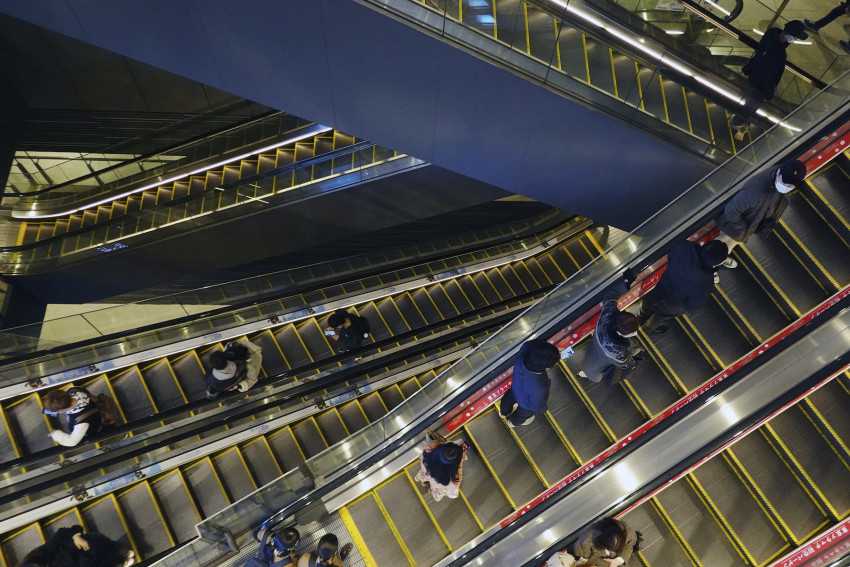Universal standard income proposal by Suga adviser may be hard sell in Japan
12 January, 2021

The thought of Japan introducing a universal basic income, recently floated by one of Prime Minister Yoshihide Suga's economic advisers, has caught the eye at the same time when the coronavirus pandemic is stirring worries about job security and social inequality.
Previously, some opposition get-togethers have pledged to study set cash payments for low-income individuals, but economists say the public is paying more attention this time around as the proposal originated from Heizo Takenaka, an associate of the Suga administration's growth strategy panel.
Takenaka's require universal basic profits in mass media interviews also came after the government's blanket 100,000-yen cash-handout this past year as a means of mitigating the effect of the pandemic on households achieved with a generally favorable public reception.
Takenaka, who placed ministerial articles between 2001 and 2006 under former Prime Minister Junichiro Koizumi, provides proposed that 70,000 yen be paid on a monthly basis to each citizen beneath the basic income course, financed by a good reallocation of the main open public pension and welfare budget.
Calling it the "best back-up," Takenaka said within an interview with Kyodo Reports in October that the cash payments should help motivate entrepreneurship and support those who lose their jobs because of digital transformation.
"There can be an estimate showing an average payment worth 70,000 yen per person will not cause a major personal burden (on the federal government) as possible financed by a number of the social security spending that will no more be necessary," he said, adding that the government could choose to raise the cash amount for all those facing more serious financial difficulties.
A professor emeritus at Keio University and the chairman of staffing offerings company Pasona Group Inc, Takenaka expressed the desire that the system would be launched "in 4 or 5 years," although he believes it'll be difficult to carry serious discussions on the problem before coronavirus pandemic is in order. He has but to formally propose the theory to the premier, he stated.
Tomohiro Inoue, an associate professor of macroeconomics at Komazawa University in Tokyo, believes universal basic cash flow could become essential to address widening monetary disparities as artificial intelligence advances and jobs become more digitally oriented -- a pattern appearing accelerated by the pandemic.
While there have been illustrations in countries such as for example Finland and Canada of tinkering with primary income, in Switzerland a proposal to introduce a scheme was voted down in a national referendum in 2016, with around 77 percent opposing it.
Despite Takenaka's influence on Suga's economical policymaking, however, economists and interpersonal welfare experts say that it's unlikely that japan public would consent to a scheme that could cause existing interpersonal welfare programs to be scaled down.
Keiji Kanda, a senior economist at the Daiwa Institute of Exploration, says it is imperative for the federal government to drastically reform its pension and other existing social security systems if it wants to introduce a basic income.
"But gaining the knowledge of the public will never be convenient and without such reform, the federal government will need to introduce massive taxes increases," Kanda said.
Addititionally there is the question of whether the public would accept the cost of a program it doesn't pay out more than enough to meet up basic needs.
Predicated on what he possesses found of the public's response up to now, Komazawa University's Inoue stated it could take a very long time ahead of progress can be made in discussions upon the feasibility of the essential income in Japan.
A program that pays 70,000 yen per month would cost the government a lot more than 100 trillion yen annually, accounting for more than 80 percent of social protection costs, such as for example welfare and public pension benefits, totaling about 121 trillion yen in fiscal 2018, in line with the latest available government info.
Karin Amamiya, a writer and anti-poverty activist, says 70,000 yen is not enough to support people living in poverty, and that the government's foremost job in helping low-cash flow citizens is to strengthen the social safety net.
"There are a few who can't work but need nursing treatment and medical offerings. (Takenaka's proposal) lacks consideration for such people," she said.
Source: japantoday.com
TAG(s):
